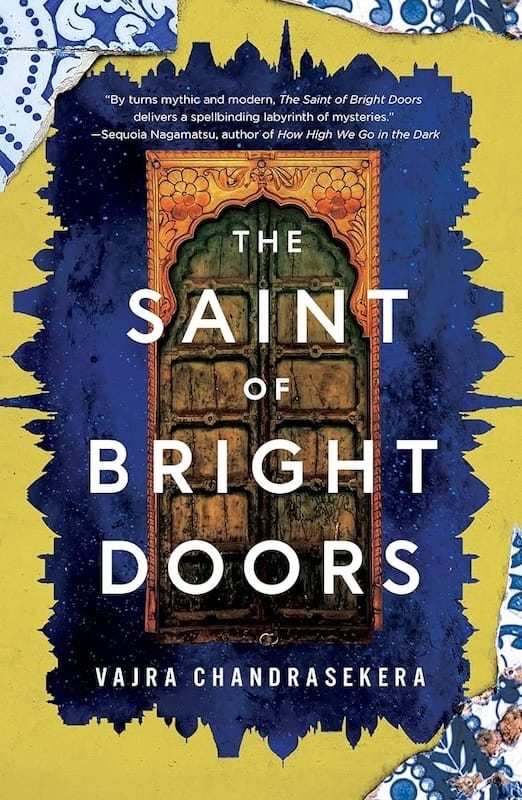July 2024 Featured Read: The Saint of Bright Doors, by Vajra Chandrasekera

It’s a fun bit of serendipity that I read this book shortly after reading Molly Templeton’s essay about the joy of reading books you don’t entirely understand, which itself referenced Chandrasekera’s second novel, Rakesfall. I do find myself wanting to talk to someone smarter than me about this book, not because I found the book difficult but rather because I find myself unable to articulate why and how this book affected me.
How can I describe this book? It’s a second-world fantasy that is set in a country that reads as South Asian to me, in a time period roughly equivalent to the present day. The main character has been raised by his mother to assassinate his father, a religious leader who has ascended to a sort of semi-divinity. The story feels sort of Borgesian in the way it presents a world where magic and mundanity coexist, where history is not what it seems. And it does some interesting things with point-of-view, that I suppose I could call somewhat postmodern but which feel epic rather than clever.
It is, I suppose, a sort of bildungsroman. I think it is also an allegory or commentary on political violence, especially as seen in present-day South Asia—though, I have to admit that I’m not familiar enough with South Asian politics to know for sure. And perhaps “allegory” is the wrong word. Maybe it’s more accurate to say that there is resonance with our real-world situation. Or that this portion of the story seems to be inspired by real-world events.
But none of that really gives you a great idea of what reading this book is like. I want to put it on the same shelf as Sofia Samatar’s Olondria novels and Susanna Clark’s Piranesi, which are not much like each other and really not much like this book in terms of what they’re about or the details of their worlds. But there is something about the way all of these books operate in the spaces and traditions of both speculative fiction and literary fiction that puts them next to each other in my mind.
If any of you have any thoughts about this book, I would dearly love to hear them. In the meantime, here are some purchase links: